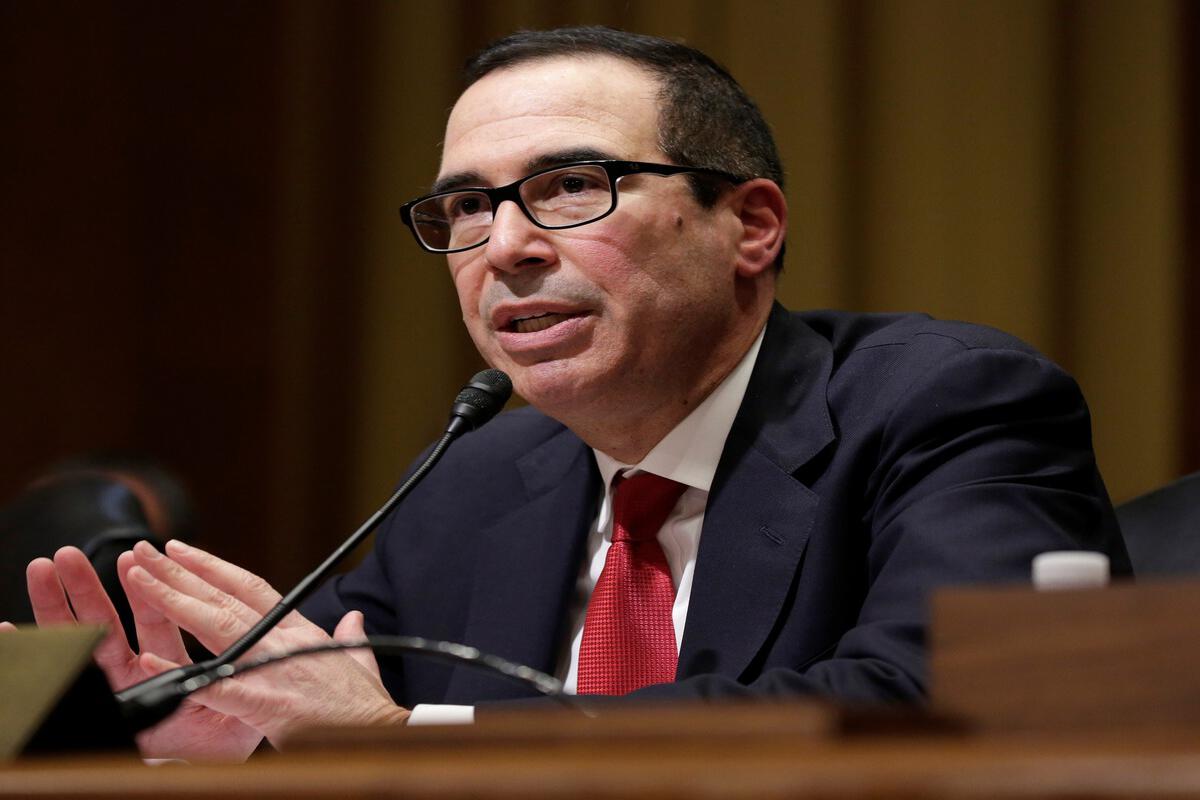Trump nominee suggests IRS cybersecurity and staffing boosts

Cybersecurity and staffing upgrades at the Internal Revenue Service appear to be in store, assuming Steven Mnuchin is confirmed as Treasury Secretary in the new Trump Administration.
Mnuchin, a former CIO and executive vice president for Goldman Sachs, told senators in a five-hour confirmation hearing on Thursday that he is “very concerned about the lack of first-rate technology at the IRS” as well as staff cuts in recent years. Mnuchin is expected to be confirmed, and would likely work with Trump to pick the next IRS director.
Noting that he has been one of the chief architects of Trump’s economic plans, Mnuchin said the administration believes that “tax simplification and fewer deductions are absolutely critical.”
That comment became a prelude to a list of suggestions he made regarding IRS changes that could help enable tax reforms, including the need to protect taxpayer privacy, improve cybersecurity and possibly increase staffing.
“I was particularly surprised that…the IRS headcount has gone down quite dramatically — almost 30% over the last number of years,” he told senators. “Especially for an agency that collects revenues, this is something that I’m concerned about. Perhaps the IRS just started with way too many people but I am concerned about the staffing of the IRS. That is an important part of fixing the tax gap.
“And I’m also very concerned about the lack of first-rate technology at the IRS and the issue of making sure we protect the American public’s privacy when they give information to the IRS … and also customer service for the many hard-working Americans that are paying taxes.”
The agency has had its share of problems. In June 2016, the IRS retired a Web-based tool for obtaining PINs — which taxpayers used to file tax returns electronically — because of repeated security attacks. And in 2015, over 700,000 taxpayers were at risk of having their personal information breached through the agency’s “Get Transcript” application.
Mnuchin brought up the need for upgrades of IRS technology and cybersecurity several times in the hearing, while Republican senators focused instead on the broader need for tax reform and other topics. Democratic senators grilled Mnuchin over his financial disclosures and his management of OneWest, which took over the troubled mortgage portfolio from failing bank IndyMac in 2009.
Mnuchin’s background in private sector finance won praise from Senate Finance Committee Chairman Orrin Hatch, R-Utah, and other senators. Prominent Democrats including U.S. Sen. Elizabeth Warren, D-Mass., have said Mnuchin is a prime example of a wealthy former banker who could be favorable to Wall Street and who defies Trump’s pledge of wanting to “drain the swamp” of insiders.
Mnuchin spent 17 years at Goldman, becoming a partner in 1994 before leaving in 2002 when he was executive vice president and CIO. Mnuchin later served as vice-chairman of hedge fund ESL Investments and then founded Dune Capital Management, which invested in two Trump hotels in Honolulu and Chicago. Trump sued Dune and other lenders over the Chicago investment, but the suit was later settled.
Mnuchin worked with other investors to buy IndyMac for $4.5 billion in 2009. IndyMac was renamed OneWest, which quickly became the largest bank in Southern California. OneWest was sold to CIT Group in 2015; Mnuchin served on the CIT Group’s board of directors until Trump nominated him to be Secretary of the Treasury on Dec. 2.
IRS cybersecurity and staffing may be Mnuchin priorities, but he faces a range of enormous long-term policy issues including possible reforms of the Dodd-Frank financial regulation and the nation’s tax code. The Treasury Secretary cannot lower tax rates or eliminate tax breaks, which are done by Congress, but he will have the leading executive role in those areas.
Mnuchin will also have a hand in U.S. trade policy. Treasury releases a report every six months on countries that manipulate their currency. Trump has indicated he wants to designate China as a currency manipulator, a decision that would involve Mnuchin.
http://www.computerworld.com/category/security/index.rss